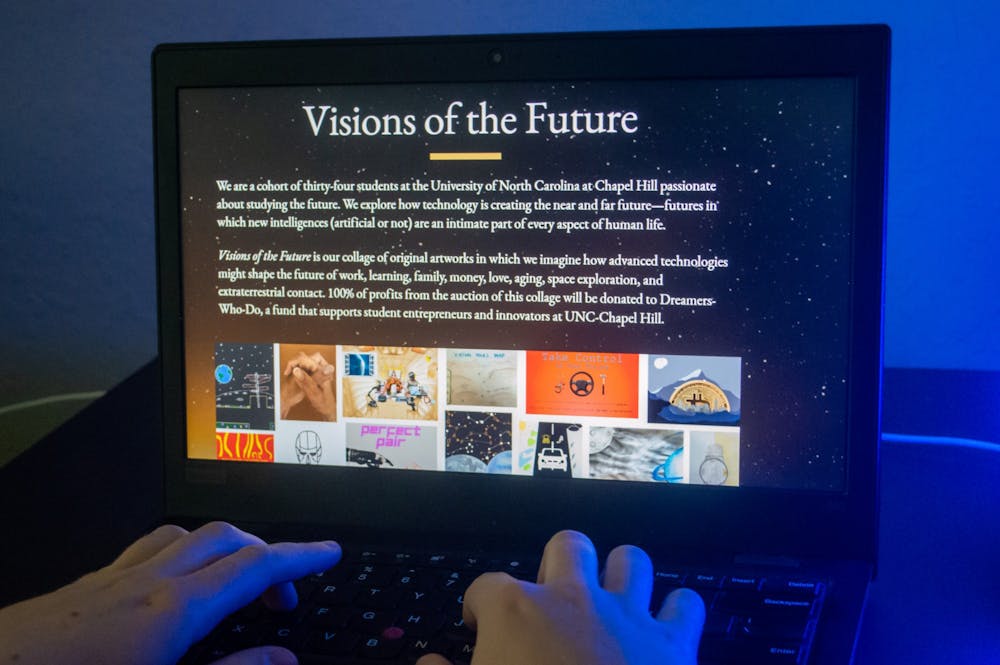When students signed up for English 128: Major American Authors for the spring semester, most expected to study writers like Emerson and Thoreau. But instructor Katharine Henry, a doctoral student, added a new twist.
Students in the class created a non-fungible token art collage and put it up for auction on eBay. The proceeds from the auction will be donated to the Innovate Carolina Dreamers-Who-Do Award, which provides funding for student innovators and entrepreneurs.
Inspiration for the project
Henry was inspired by Tyler Cowen’s book “Average is Over” and some of literary study’s fundamental questions that focus on what it means to be an individual and a collective. Keeping these in mind, she decided the central theme of her class would be futurism.
“We were looking at taking different approaches to different kinds of texts to think about how different people — futuristic economists, sci-fi writers and artists — are imagining what the future will be like,” Henry said.
About midway through the semester, non-fungible tokens, or NFTs, were buzzing on the internet. Henry said NFTs are proof of digital ownership, similar to a deed.
She used a car as an example: somebody could borrow her car to drive to work, but that doesn’t mean they own her car. She would still have the deed and legal ownership of it. The same concept can be applied to digital images, and NFTs are helping solve the problem of digital ownership.
“If you make some kind of interesting artwork, and you put it online, anybody can right-click that image and copy it to their desktop," she said. "In a way, anyone who copies that file onto their computer becomes, sort of, the owner of that image.”
When an image has many potential owners and many copies of the image exist, it loses much of its value, said Henry.




